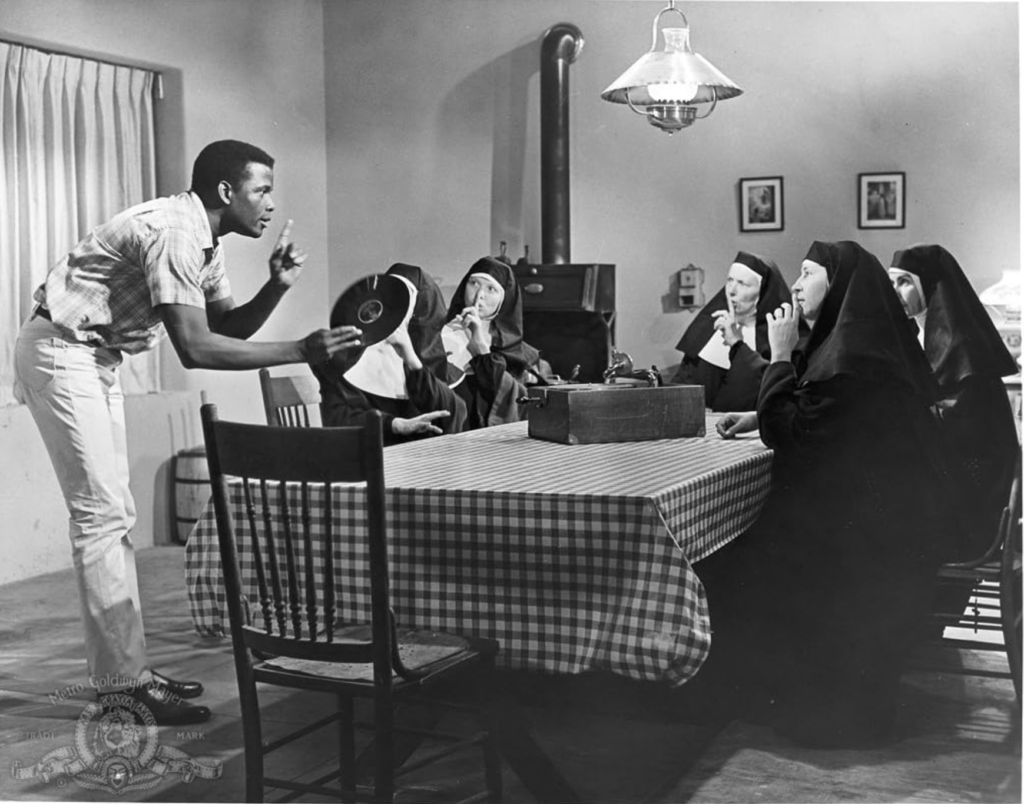During the height of the Great Depression and throughout much of the turmoil, fear, and uncertainty of World War II, the Hollywood studio system spent a lot of time and money making movies to help people forget about their troubles.
With so much turmoil, fear, and uncertainty today, it is a good time to revisit the popular entertainment model of letting the world get along without us and spend 90 minutes watching something edifying and soul-warming.
It is not a matter of recapturing something that has been lost, but rather rediscovering films of value and worth that, as times continue to trouble us, radiate a sense of peace and calm, and maybe even bring a tear to our eye. Good films are like good books, we can return to them periodically and find comfort in the things we remember and a certain wonder at things we see in them for the first time.
A film like “Lilies of the Field” is just the tonic our current state of global affairs warrants. It does not have aliens in it. It does not have a superhero. There are no car chases. Nothing explodes.
The plot is simple. None of the actors, save the leading man, are going to be mistaken for international movie stars. But as this film so beautifully demonstrates, simplicity is not always a bad thing. All these decades later, it still packs complex personal relationships and some rather pronounced explorations into the power of faith. It wonders aloud on the idea that “modern day” miracles do happen, even if the modern days of this film were back in 1963.
The movie does star a very big budget Hollywood actor of the day, Sidney Poitier. While today a man of color carrying a movie is not shocking, Poitier was a true groundbreaking figure in American films.
He was the most important African American actor of his or any generation. Actually, he was a Bahamian American actor with African roots. When “Lilies of the Field” was being made, Black people were having dogs set upon them in American cities and the Civil Rights Movement was beginning to get traction.
Poitier was a thorough leading man in a system and an era where Black actors were still either comic foils, servants, sidekicks, or secondary players. He never made a movie where he wasn’t the lead or co-lead, and his characters were never stereotypical. He had been out of the public’s view and imagination for some time when he passed away in 2022, but he left a legacy of strong performances in a variety of film genres.
Poitier made his first big impact on the film industry in the 1950s’ “Blackboard Jungle.” By the time he made “Lilies of the Field,” he was on his way to unlikely stardom — unlikely due to the color of his skin. Yet he soared over that “obstacle” with a powerful screen presence and powerful acting chops.
In the film, Poitier’s character is a traveling carpenter who breaks down on a lonely desert highway. When he stops to get water for his ailing radiator, his life changes forever — and so does the life of the rigid and stern mother superior of an order of nuns who are in desperate need of a chapel.
It may not be the most subtle film ever made. I mean, do we really expect an outcome any different than the one we get? If that formula works for every romantic comedy ever made, then why shouldn’t it work in a “niche” film like this? It is a film calibrated to perfection, covering faith, the conflict of cultures, and how two iron wills engaged for a singular purpose can create friction as well as find common ground. Ultimately, it is a film about love.
Actress Lilia Sofer, who plays Poitier’s foil as the headstrong Mother Maria, head of the order of German nuns living out of sync in the American Southwest, was a bit of a miracle herself. When she was cast for the part, she was working at the lost and found desk of the New York Transit Authority. After the film was released, she was an Academy Award nominated actress.
The world still needs miracles — just watch the news. In the meantime, if you need to take an antidote for over-indulgence of current affairs, I can think of no stronger medicine than “Lilies of the Field.” You can find it on DVD from a variety of sources. It will be the best 10 bucks you have spent in a long time.

